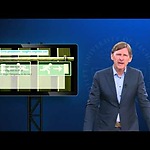The following web lecture is about moral dilemmas and the moral overload of trying to satisfy these dilemmas. The most basic definition of a moral dilemma is the following:
- The agent ought to do A.
- The agent ought to do B.
- The agent cannot do both A and B.
Moral problems in science and technology often take the form of such moral dilemmas. Scientists, engineers and designers often feel the obligation to make the world a better place: to make the world safer, more sustainable while creating new jobs, protecting privacy and still preventing terrorism, to give autonomy and freedom to future users and quality of life to future generations.
They want to achieve all of these things - and as many people who want to do the right thing - they encounter the problem of moral overload. The problem is there is just too much to be done and that we have too many obligations that we cannot fulfil all at once. Let's consider ways we can deal with this; it requires different ways of thinking.
Readings for Moral Overload
'Ethics can be the source of technological development rather than just a constraint and technological progress can create moral progress rather than just moral problems.'
This is one the conclusions of our suggested reading: the Open Access article Engineering and the Problem of Moral Overload by Jeroen Van den Hoven, Gert-Jan Lokhorst and Ibo Van de Poel. It also gives some examples of how technological innovations can deal with moral overload. For the engineers among you, the reading also includes a more mathematical approach to the problem of moral overload.
